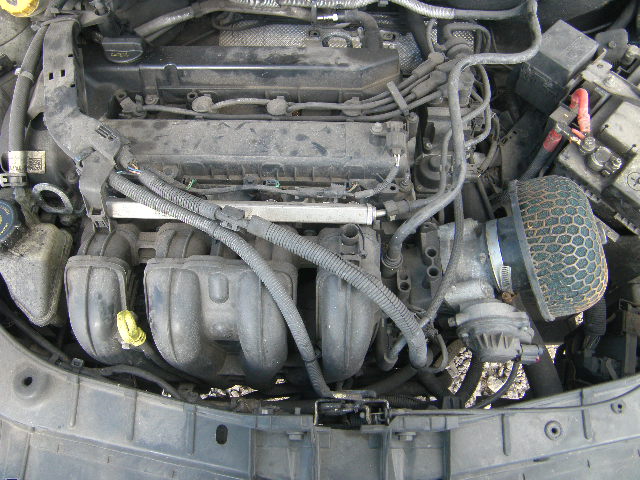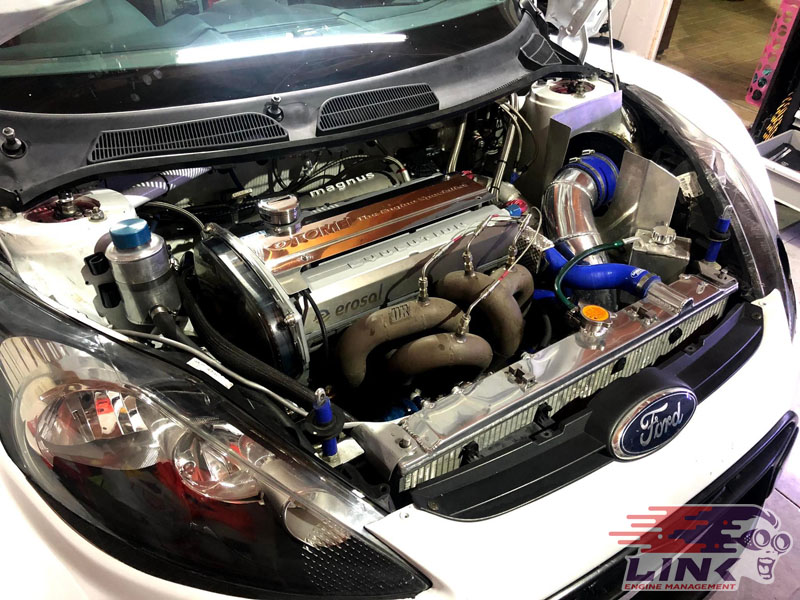The Future of Engines: Innovations Driving Lasting Power Solutions
As the automobile market browses the important transition towards sustainability, the future of engines is progressively defined by groundbreaking advancements. Electric engine developments, along with encouraging developments in hydrogen fuel cells and biofuels, are reshaping the landscape of power solutions. The development of hybrid systems additionally complicates this development, presenting both opportunities and difficulties to reduce exhausts properly. Paired with the integration of artificial intelligence in engine design, these technical strides raise vital inquiries about their lasting viability and impact on standard paradigms. What might this suggest for the industry and customers alike?
Electric Engine Developments
The development of electrical engine growths indicates a crucial shift in the aerospace and automotive sectors, driven by the urgent requirement for lasting alternatives to nonrenewable fuel sources. This shift is characterized by considerable improvements in battery modern technology, power electronics, and electric motor layout, which jointly enhance the effectiveness and performance of electric engines.
Recent technologies have led to the production of lighter, a lot more energy-dense batteries, such as lithium-silicon and solid-state batteries, which guarantee longer ranges and shorter charging times. Furthermore, enhancements in electric motor effectiveness, such as the use of irreversible magnets and advanced cooling systems, allow electrical engines to operate properly under differing conditions. These enhancements not just enhance car performance yet also contribute to a decrease in total energy consumption.
Furthermore, the combination of sophisticated software formulas has optimized power management in electrical vehicles, permitting regenerative braking and anticipating charging methods. As suppliers increasingly welcome electric propulsion, the aerospace and auto industries are witnessing a paradigm change in the direction of greener innovations. This development not only satisfies governing needs yet also straightens with consumer choices for environmentally friendly transport services, strengthening electrical engines as a keystone of future sustainable mobility.
Innovations in Biofuels
As the vehicle and aerospace industries progressively focus on sustainable power resources, improvements in biofuels become a corresponding service to electric engines. Biofuels, originated from natural products such as plants, waste, and algae, offer an innovative method for reducing greenhouse gas exhausts and reliance on fossil fuels.
Recent research has actually concentrated on boosting the performance and sustainability of biofuel production. Second-generation biofuels make use of non-food feedstocks, decreasing competitors with food supply and minimizing ecological effect. Moreover, improvements in synthetic biology have actually allowed the design of microbes to produce biofuels better, causing higher returns and lower manufacturing expenses.
Furthermore, the growth of drop-in biofuels enables seamless assimilation right into existing facilities, enabling a smoother change for markets commonly dependent on fossil fuels. ford fiesta engine. These gas can be utilized in existing engines without adjustments, facilitating their adoption throughout numerous sectors
Investments in biofuel innovation, together with encouraging plans, are important to drive innovation and scalability. As the worldwide neighborhood looks for to combat environment change, biofuels supply a practical, prompt remedy that aligns with the overarching objective of sustainability in transportation and air travel.
Hydrogen Fuel Cell Innovation
A growing variety of firms and scientists are checking out hydrogen fuel cell technology as a sensible choice to conventional source of power in transport and power systems. This modern technology transforms chemical power from hydrogen into electrical power through an electrochemical response, with water as the only result, making it an environmentally pleasant alternative.
The core of hydrogen fuel cells is the gas cell stack, where hydrogen molecules are divided right into protons and electrons. The flow of electrons produces electrical power, while protons move via a membrane layer to combine with oxygen from the air, forming water. This process leads to high effectiveness and reduced emissions, positioning hydrogen fuel cells as a crucial player in the shift to sustainable energy.
Substantial advancements have actually been made in boosting the resilience and efficiency of fuel cells, alongside minimizing costs through ingenious production techniques. Moreover, the development of hydrogen production techniques, such as electrolysis powered by sustainable energy sources, improves the sustainability of the general system. As infrastructure for hydrogen refueling expands and production approaches come to be much more effective, hydrogen fuel cell technology holds wonderful guarantee for decarbonizing numerous markets, including heavy-duty transport and stationary power generation.
Hybrid Systems and Their Effect
Hybrid systems represent a substantial advancement in sustainable engine technology, merging standard interior combustion engines with electrical propulsion to enhance power effectiveness and reduce exhausts (ford fiesta engine). This double method enables automobiles to utilize both power sources, making it possible for better versatility in energy usage and decreasing dependence on fossil gas

In enhancement to ecological benefits, crossbreed systems provide customers a practical transition towards completely electric lorries. They ease range stress and anxiety by integrating the convenience of fuel with straight from the source the benefits of electrical propulsion, making them an appealing choice for a broader target market. As suppliers buy hybrid innovation, the development of advanced battery systems and lightweight materials remains to improve performance. Generally, crossbreed systems stand for an essential action towards accomplishing lasting transportation and dealing with the immediate need for eco pleasant power services.
The Duty of AI in Engine Design
Leveraging advanced algorithms and artificial intelligence methods, the auto market is progressively incorporating synthetic intelligence (AI) into engine layout processes. AI enhances the performance and performance of design by analyzing vast datasets to identify ideal arrangements and performance parameters. This capacity permits engineers to simulate different operating conditions and forecast engine actions under multiple scenarios, substantially minimizing the time and price linked with standard prototyping techniques.
Moreover, AI promotes the advancement of innovative products and burning processes tailored for sustainability. By optimizing gas effectiveness and lessening emissions, AI-driven designs align with worldwide efforts targeted at decreasing the carbon impact of auto engines. Artificial intelligence formulas can additionally predict maintenance requirements, causing improved wikipedia reference reliability and long life of engine components.
Additionally, AI is important in the assimilation of electrification modern technologies, such as crossbreed systems, where it can maximize battery monitoring and power healing processes. As the market relocates towards more sustainable power services, the function of AI in engine design becomes progressively important, driving advancement and improving the performance of future engines. Inevitably, the partnership between AI and engine find more layout declares a new period of smarter, cleaner, and a lot more efficient vehicle technologies.

Verdict
In conclusion, the future of engines is being shaped by a merging of cutting-edge technologies that prioritize sustainability. Electric engine innovations, biofuel advancements, hydrogen fuel cells, and hybrid systems collectively add to a substantial reduction in exhausts and environmental impact.
Electric engine improvements, alongside appealing growths in hydrogen gas cells and biofuels, are improving the landscape of power options. In addition, renovations in electrical motor effectiveness, such as the use of permanent magnets and advanced cooling down systems, make it possible for electrical engines to operate properly under differing problems. By optimizing fuel efficiency and lessening emissions, AI-driven layouts line up with global campaigns intended at minimizing the carbon impact of auto engines. As the industry moves in the direction of more sustainable power options, the function of AI in engine layout becomes significantly crucial, driving development and boosting the performance of future engines. Electric engine improvements, biofuel growths, hydrogen gas cells, and crossbreed systems jointly add to a substantial reduction in emissions and environmental impact.